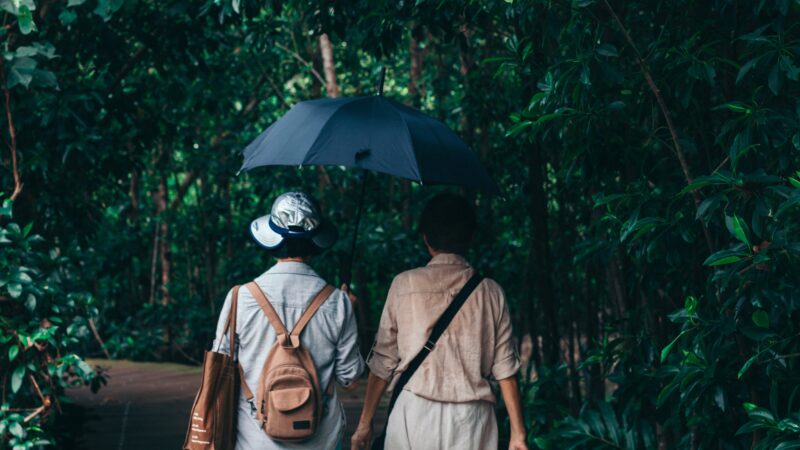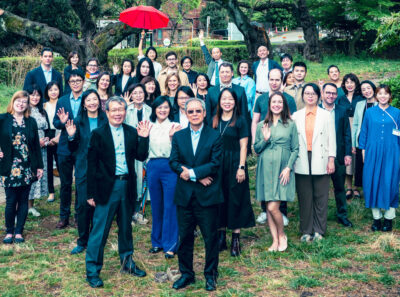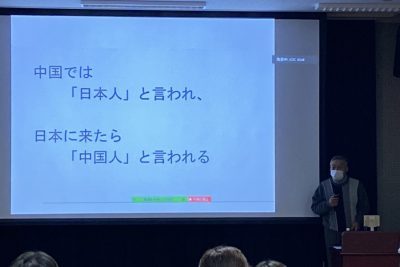Rethinking Learning for Sustainable Futures

Authors: Trent Brown, Kaori Mita, Jesse Rafeiro, Laur Kiik, Cecilia Grandi-Nagashiro
The global sustainability challenge requires processes of collective learning. In short, we, as a species, need to learn to do things differently. But are dominant theories of learning adequate for conceptualising this task?
Conventionally, learning is understood as a didactic relationship between a teacher (who is assumed to know) and a student (assumed to be ignorant). What is (hopefully) acquired by the student is the knowledge the teacher possesses. Yet, there are at least five reasons why this proves an inadequate conceptualisation of learning processes in general and of the learning required for sustainability transitions in particular.
First, rather than a one-way flow of knowledge between a teacher and their students, learning for sustainability transitions requires engaging with the diverse knowledge and perspectives of multiple actors. As van Mierlo and Beers (2020) contend, this learning is not one-way but, by necessity, reciprocal and collaborative. It depends upon a spirit of openness, receptiveness, and generosity: a willingness to learn from each other. For this reason, recent studies of sustainability transitions (e.g., Scholz & Methner, 2020) have found theories of social learning – which emphasise the learning processes that occur as diverse actors become dependent on each other – to be useful.
Second, the sustainability challenge requires not just new knowledge. Fundamentally, we need to do differently. We need to learn not only the theories but also the practices of sustainability, and this requires models of learning that explain not only the acquisition of knowledge but also of skills, dispositions, and values. As van Poeck et al. (2020) argue, acquiring knowledge or a set of instructions on ‘what to do’ can hardly be an adequate solution when our existing knowledge is part of what has brought us to the current state of crisis: we need to develop skills to learn-by-doing.
Third, learning for sustainability occurs not only in formal education sites; it is a far more continuous process. It occurs within the applied situations in which sustainability challenges are ‘worked out.’ Are we capable of transforming the institutions through which we live and work in order to make them better facilitate our learning of more sustainable practices? What theories of learning would this require? Communities of practice theory (Lave & Wenger, 1991; Wenger 1999) offers us some direction for thinking about learning as it occurs in ordinary lived experience, but its insights need to be better integrated into standard educational theory and practice.
Fourth, educationists may need a fundamental shift in attitude regarding nature. Rather than seeing nature as an inert domain that humans can learn about, we may need to start recognizing nature’s agency and its capacity as a teacher we can learn from. The ‘wild pedagogies’ movement encourages approaches to education in which students develop better ways of listening to and caring for nature and responding to its voice (see Blenkinsop et al., 2022). While there are still many challenges in implementing ‘wild pedagogies,’ it represents a promising framework for re-engaging education’s transformative potential at this critical historical (perhaps epochal, geological) conjuncture.
Fifth, it is not just that we need to change the contents and processes involved in education but also questioning the purpose of education - its function in society. As Wallin (2007) contends, our educational institutions and the knowledges they impart put to work expectations that the purpose of education is to prepare people for the world of work. What if the very instrumental logic that informs this sense of education’s institutional mandate is ill-equipped to face the challenges of life in the Anthropocene? What if the ‘world of work’ education seeks to prepare students for has become destructive and hence needs to be fundamentally questioned? Are we capable of rethinking education’s social mandate?
At Tokyo College, the Sustainability and Society Research Group is enquiring into current theories and research on ‘learning for sustainability’ and seeking innovative understandings of learning processes that may be adequate to understanding sustainability transitions as they emerge across different areas of research and practice. We are also on the lookout for examples of innovative pedagogical practices that foster the kind of transformational learning described above – both at the University of Tokyo and beyond.
Moreover, several researchers based at Tokyo College are engaged in research that speaks directly to these themes:
・Jesse Rafeiro’s research merges digital heritage and eco-theology into architectural pedagogy. He is currently working on an immersive learning experience of the “form-of-life” of the 16th-century Capuchin Convent of Santa Maria da Arrábida, Portugal. In many ways, the convent of Arrábida can be read as the antithesis of contemporary life, where landscape and building merge into a holistic system of undifferentiation. The case study poses a challenge to characterisations of the Christian faith as an inherently anti-ecological belief system. Instead, the Franciscan cosmos is altogether theophanic – or “God revealing” – where all beings are recognized for their intrinsic value. The immersive learning environment being created exposes students to alternative ways of thinking and building beyond normative anthropocentric ethics while contributing to the cultural sustainability of the place itself
・Kaori Mita is working on sustainability transitions from a socio-technical transition perspective, specifically, the transition to renewable and clean energy systems in the Arab Gulf region, focusing on the role of the private sector. The resource-rich countries in the region are moving forward to a more environmentally and economically sustainable future by developing new industries around renewables and deploying new technologies while providing vital conventional energy supplies to developing countries and emerging economies. Her research considers the forms of institutional learning that take place as part of these sustainability transitions.
・Trent Brown’s work on skill development in rural India considers how learning new agricultural skills often involves both formal learning and informal learning with human and non-human actors. A current project (with Syed Shoaib Ali and Catherine Phillips) on beekeeping communities of practice in the Indian Punjab highlights how learning the skills of beekeeping requires active, caring, thoughtful attentiveness to bees and local ecology. Beekeepers often come to regard bees as their foremost teachers – providing an illustration of how, for some activities and in certain settings, prevailing modes of learning are already ‘wild.’
・Laur Kiik explores how revolution and war can become the setting for learning and teaching about sustainability. Experiencing vast natural resource grabbing – big mining, logging, hydropower, single-crop plantations – has fuelled new environmentalism among ethnic Kachin people in the highlands between Burma (Myanmar), China, and India. This learning and teaching of ecological care rose as part of the Kachin national movement and Christian and animist religions. Now, Kachin nationalists, Western and Burmese wildlife conservationists, and the ancient forests and wild animals themselves are all struggling to shape what sustainable life means in the context of war.
・Cecilia Grandi-Nagashiro, a member of the Global Faculty Development Program in Komaba, is working on a way to address faculty development in the context of today's environmental crisis. Her approach centers on four key ideas: 'Reflect, Adapt, and Listen and Talk.'In the first stage, faculty are encouraged to reflect on their existing pedagogies and teaching philosophies, adapt and embrace new approaches, and actively listen and understand the concerns expressed by students who are navigating an uncertain future shaped by environmental challenges. The second stage involves fostering a meaningful dialogue between faculty and students on these critical themes, creating a space where they can 'talk' openly and collaboratively. The ultimate goal is to enhance faculty skills and prepare students to face the future confidently.
References
Blenkinsop, S., Morse, M., & Jickling, B. (2022). Wild Pedagogies: Opportunities and Challenges for Practice. In M. Paulsen, J. Jagodzinski, & S. M. Hawke (Eds.), Pedagogy in the Anthropocene: Rewilding Education for a New Earth (pp. 33-51). Palgrave Macmillan.
Lave, J., & Wenger, E. (1991). Situated Learning: Legitimate Peripheral Participation. Cambridge University Press.
Scholz, G., & Methner, N. (2020). A social learning and transition perspective on a climate change project in South Africa. Environmental Innovation and Societal Transitions, 34, 322-335.
van Mierlo, B., & Beers, P. J. (2020). Understanding and governing learning in sustainability transitions: a review. Environmental Innovation and Societal Transitions, 34, 255-269.
van Poeck, K., Östman, L., & Block, T. (2020). Opening up the black box of learning-by-doing in sustainability transitions. Environmental Innovation and Societal Transitions, 34, 298-310.
Wallin, J. J. (2017). Pedagogy at the brink of the post-anthropocene. Educational Philosophy and Theory, 49(11), 1099-1111.
Wenger, E. (1999). Communities of Practice: Learning, Meaning, and Identity. Cambridge University Press.








